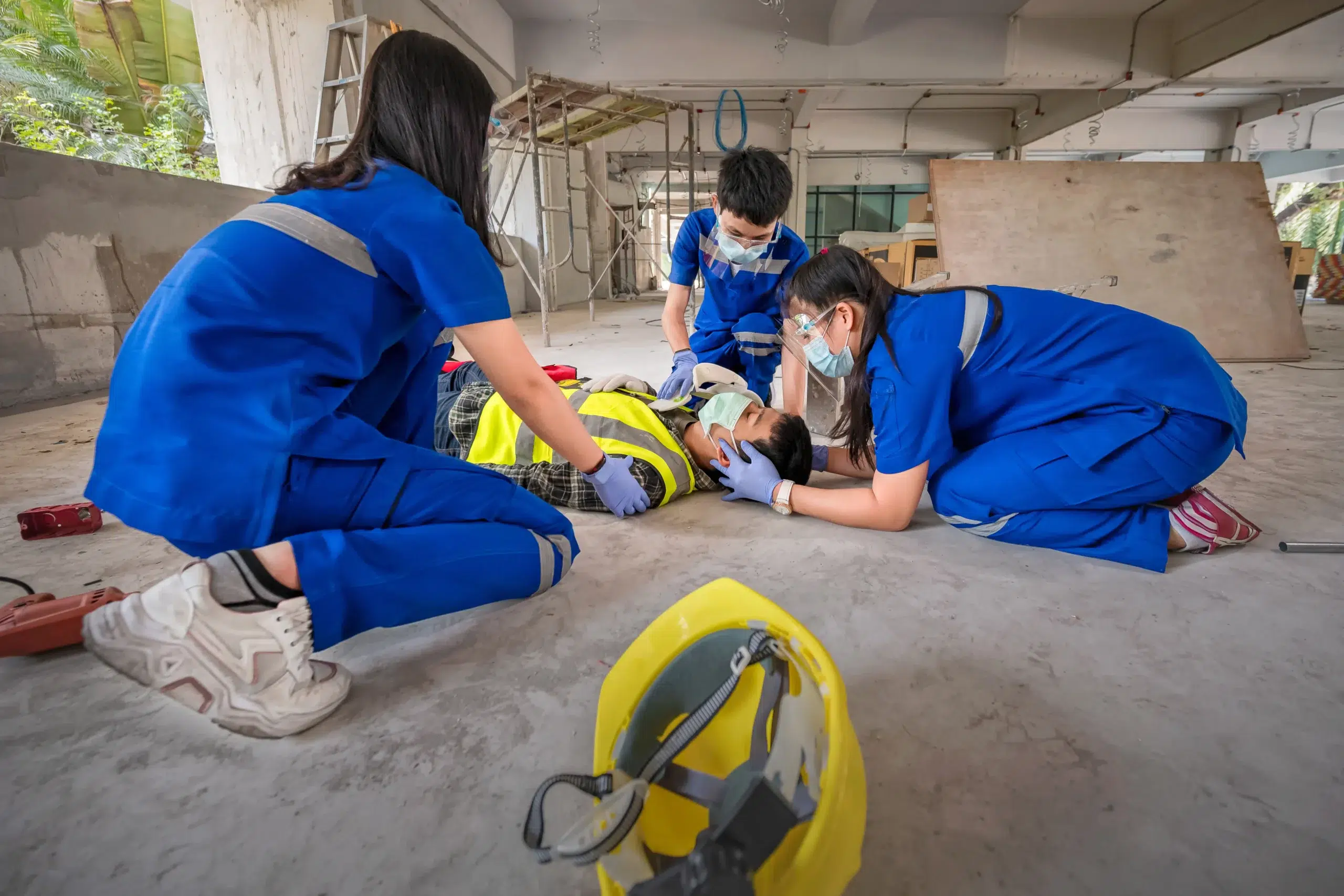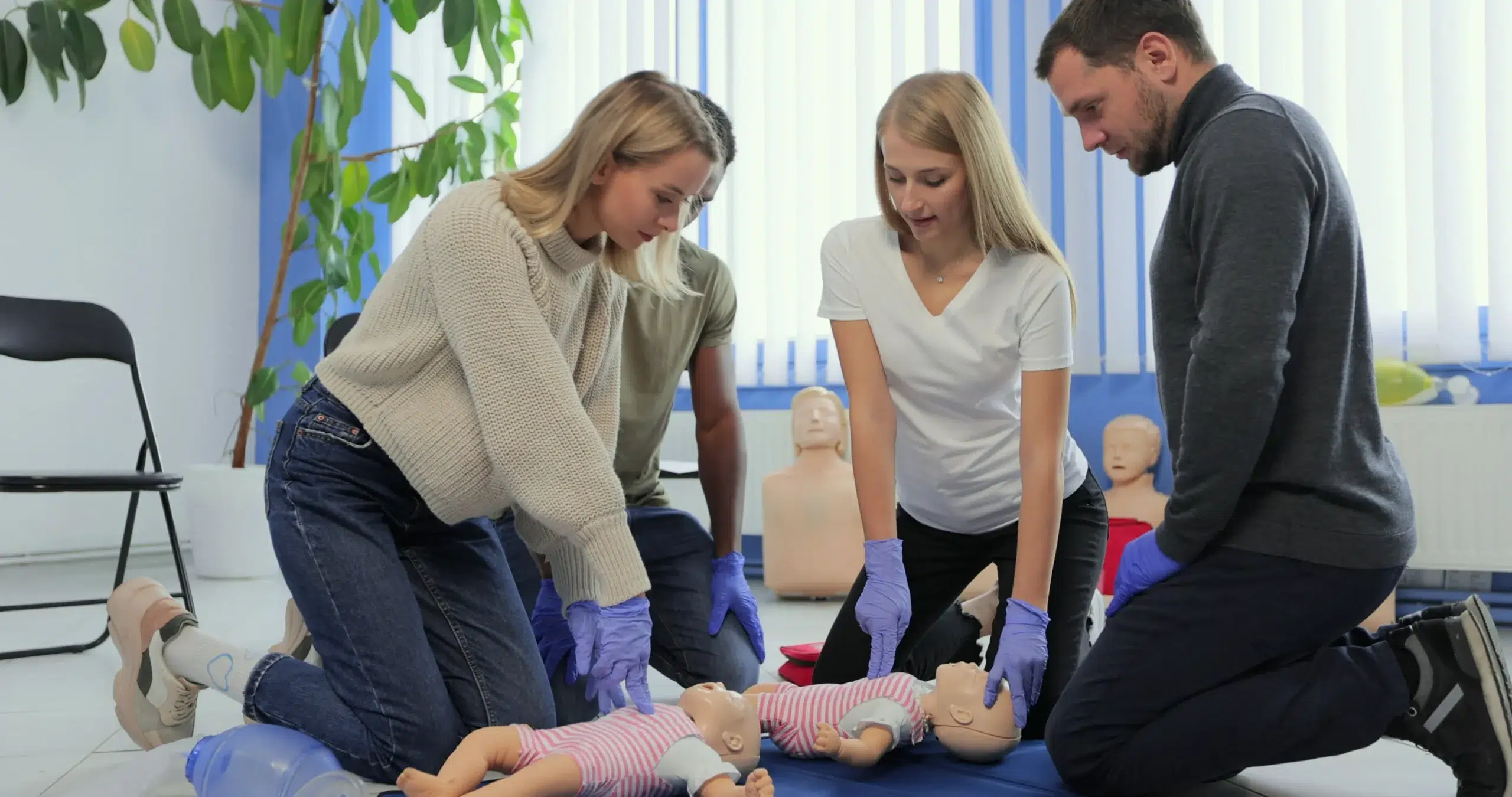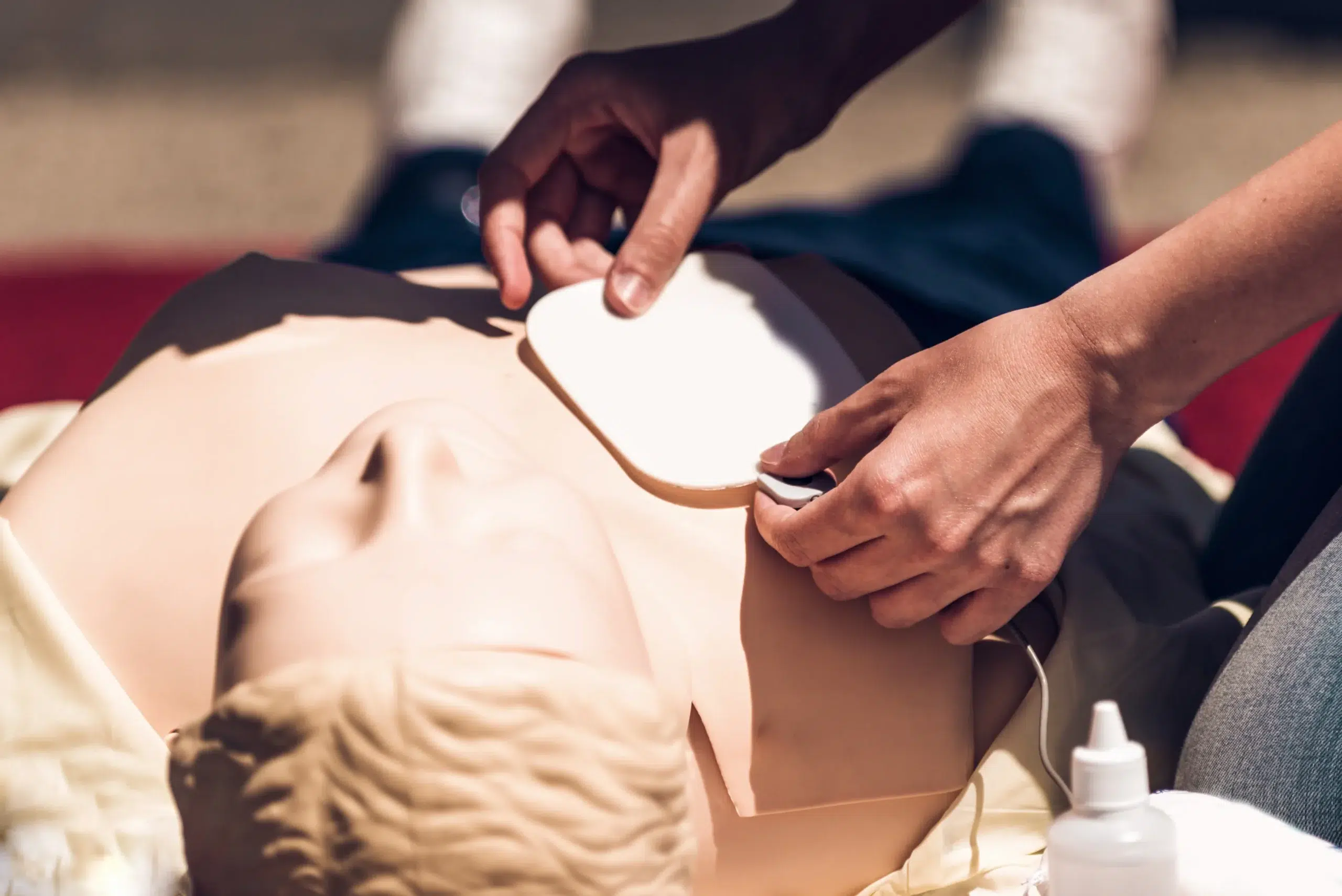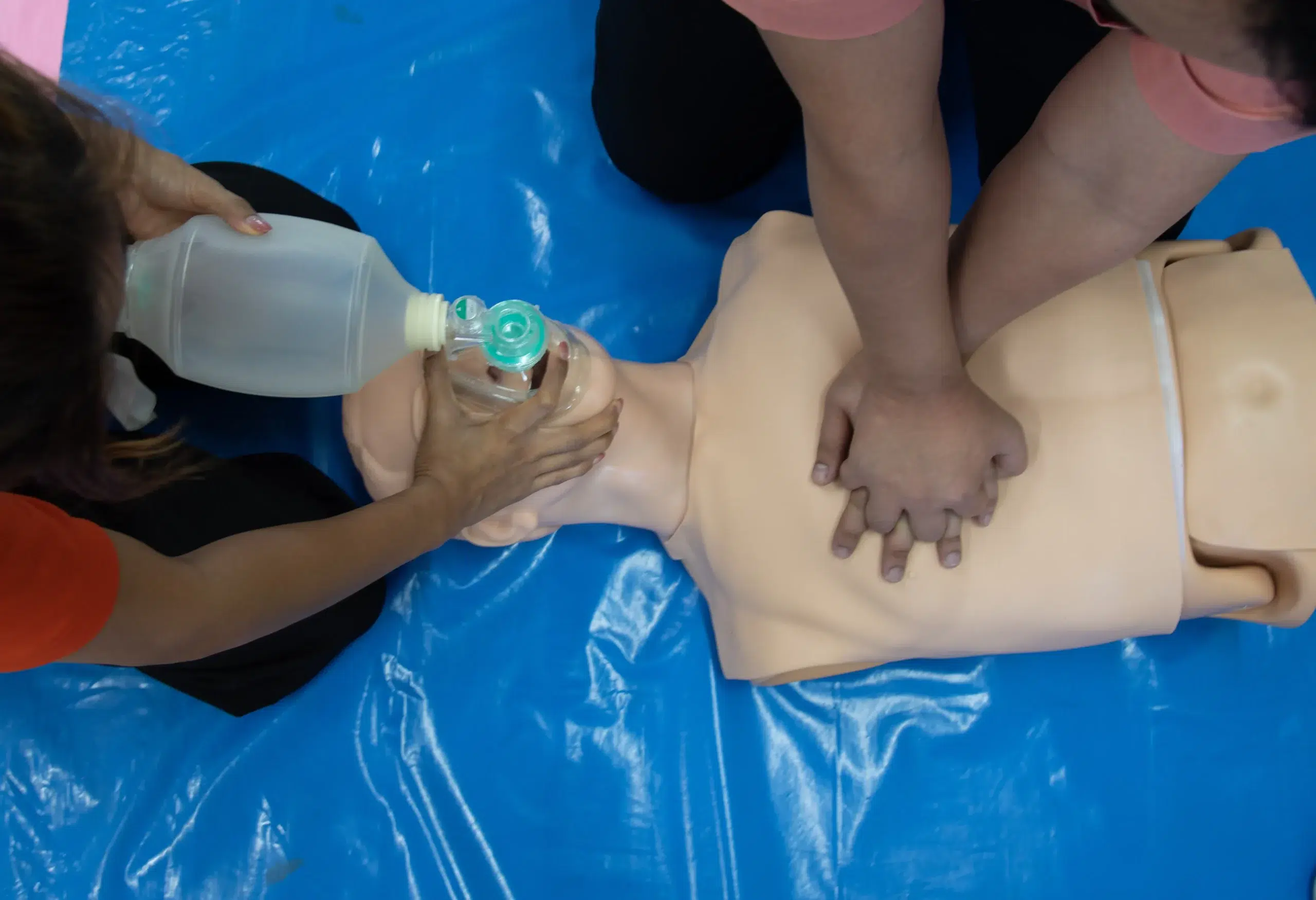In the face of a medical emergency, knowing CPR can be the difference between life and death. But CPR isn’t a static skill—guidelines and best practices evolve, making it essential to stay current with your training. Many people wonder, “When does CPR certification expire?” and for good reason. Understanding the ins and outs of CPR certification expiration is crucial for anyone who wants to be prepared to help in a crisis. This guide will cover everything from how long CPR certification lasts and what factors influence its expiration to the potential ramifications of an expired certification and the steps you can take to renew it. We’ll also debunk some common myths surrounding CPR certification, empowering you with the knowledge and confidence to respond effectively in emergencies.
Key Takeaways
- Stay current to save lives: Maintaining a current CPR certification ensures you’re equipped with the latest techniques and best practices, giving you the confidence to act quickly and effectively in emergencies.
- Know your renewal requirements: CPR certification expiration dates vary based on factors like the certifying organization and your specific job requirements. Understand these factors to avoid lapses in your certification.
- Renew with ease: CPR certification renewal is a simple process with both online and in-person options available. Prioritize regular renewal to keep your skills sharp and be prepared to help when it matters most.
What is CPR Certification Expiration?
CPR certification expiration simply means the date your CPR training is no longer valid. It’s similar to a driver’s license—it expires for a good reason. Most CPR certifications, like those from the American Heart Association and the Red Cross, last for two years. This timeframe is designed to keep your skills and knowledge fresh, as medical guidelines and best practices change. CPR1 points out how skills can fade, which is why regular recertification is so important. Staying current is key for safe and effective care in emergencies. Health Education Pro explains how this expiration ensures everyone’s trained in the latest techniques. Regularly renewing your certification shows you’re dedicated to providing the highest quality CPR and maintaining those essential skills. For more on checking your certification status, visit Save A Life CPR.
How Long Does CPR Certification Last?
Knowing when your CPR certification expires is crucial for any professional who uses this life-saving skill. Let’s break down the typical timeframes and some key differences between certifying organizations.
Typical Expiration Timeframes
CPR certifications, especially those from widely recognized organizations like the American Heart Association and the Red Cross, are typically valid for two years. This standard timeframe reflects the ongoing evolution of best practices in CPR techniques and the importance of regularly refreshing your knowledge and skills. Staying current with the latest guidelines ensures you can provide the most effective care during an emergency. For more information on CPR renewal and recertification, check out the Red Cross website.
Differences Between Certifying Organizations
While the two-year validity period is common, remember that different organizations may have specific renewal requirements. Always double-check the guidelines provided by the organization that issued your certification. This ensures you’re meeting their specific standards. For example, online CPR certifications might not satisfy all workplace requirements. OSHA generally doesn’t accept online-only courses for workplace CPR certification. Understanding these nuances can save you time and ensure your certification remains valid and accepted. CPR1 offers helpful resources outlining how long a CPR certification is valid and other important considerations. You can also explore our American Heart Association BLS courses for comprehensive training options.
What Affects CPR Certification Expiration?
Several factors influence when your CPR certification expires. Understanding these factors helps you stay prepared and compliant with workplace requirements. Let’s break them down:
Course Type
The type of CPR course you take plays a significant role in how long your certification is valid. Most CPR certifications, including those from the American Heart Association and the Red Cross, are typically valid for two years. This standard timeframe reflects the evolving nature of best practices in CPR. While not legally required to perform CPR in most situations, maintaining a current CPR certification demonstrates your proficiency and commitment to using the most up-to-date techniques. It also ensures you’re prepared to respond effectively during an emergency. For a list of CPR and First-Aid courses, visit our CPR and First-Aid course page.
Job Requirements
Your specific job requirements can also influence how often you need to renew your CPR certification. Some healthcare professions and other fields mandate annual renewal to ensure their employees maintain current skills. Different organizations have varying requirements, so check with your employer or licensing board to understand their specific guidelines. This proactive approach will help you avoid any compliance issues and maintain your job qualifications.
Certifier Rules
The rules set by the certifying organization also affect your certification’s expiration. These organizations regularly update their training materials and procedures to align with the latest scientific advancements and best practices in CPR. The expiration of CPR certifications ensures that individuals stay current with these changes. Your certification remains valid if you move to a new state, as these certifications are nationally recognized. For example, if you received your certification in San Jose and relocate to Santa Clara or Sunnyvale, your certification remains valid until its expiration date.
What Happens if Your CPR Certification Expires?
Letting your CPR certification lapse might seem like a small oversight, but it can have significant repercussions, impacting your job, your confidence in responding to emergencies, and even how you perceive your role in providing aid. Let’s break down the potential consequences.
Problems at Work
Many healthcare jobs, education roles, and other professions require valid CPR certification. If yours expires, you could face temporary suspension or even job loss. It’s a simple administrative task to renew, so staying current is crucial for your professional standing. Check with your employer about their specific policies regarding CPR certification to avoid any surprises. Don’t let an expired certification jeopardize your career.
Legal Issues
The good news is, even with an expired CPR certification, you’re still legally protected under Good Samaritan laws when you provide CPR in an emergency. These laws shield you from liability as long as you act in good faith. However, an expired certification could signal a lack of recent training and updated knowledge of the latest CPR techniques. This might affect how effectively you respond under pressure. While legally you’re covered, maintaining current skills through regular recertification ensures you can act swiftly and confidently when it matters most. It demonstrates your commitment to providing the best possible care.
Emergency Response Readiness
CPR skills, like any skill, can diminish over time. Studies suggest that CPR skills can decrease by as much as 20% within a few months of training. An expired certification often means you haven’t had recent practice, which could impact your ability to recall and perform CPR effectively in a real emergency. Regular CPR training reinforces best practices and keeps your skills sharp, maximizing your chances of providing life-saving assistance. Staying certified means staying prepared and ready to respond when every second counts.
How to Renew Your CPR Certification
Renewing your CPR certification is straightforward. Staying current ensures you’re always prepared to help in a crisis. Here’s a step-by-step guide to help you through the process.
When to Renew
CPR certifications, from organizations like the American Heart Association and the Red Cross, are typically valid for two years. Start the renewal process about a month before your certification expires to avoid a lapse. Many organizations offer a short grace period, often around 30 days. However, if your certification expires, you’ll likely retake the entire course instead of a refresher. Check with your certifying organization for their specific renewal policy. CPR1 offers helpful information on CPR certification timelines.
Renewal Steps
First, confirm your certification’s expiration date. You can usually find this on your certification card or through the issuing organization. Save A Life CPR provides guidance on checking your CPR certification status. Once you know the expiration date, choose a renewal course that fits your schedule and learning style. Many organizations offer in-person and blended learning options (online coursework and an in-person skills session). Register for the course and complete all the requirements. Afterward, you’ll receive your updated certification, valid for another two years.
Online vs. In-Person Renewal
Both online and in-person CPR renewal courses are available, each with advantages. Online courses offer flexibility, allowing you to complete the coursework at your own pace from anywhere with internet access. However, online-only CPR certifications may not meet all workplace requirements. For example, OSHA typically requires a hands-on skills component. In-person renewal courses provide direct interaction with an instructor and the opportunity to practice your skills. The Red Cross offers details on CPR renewal options, including blended learning, which combines online learning with in-person skills sessions. Consider your individual needs and workplace requirements when deciding which method suits you.
Tips for Healthcare Professionals
As a healthcare professional, your CPR skills are essential. Here’s how to stay at the top of your game:
Regular Practice and Refresher Courses
CPR certifications typically expire every two years because CPR techniques and medical knowledge are constantly evolving. Regular practice is key, but often difficult to fit into a busy schedule. Don’t let your skills get rusty. Mark your calendar to renew your CPR certification within 30 days of its expiration date. If you wait longer, you’ll likely need to retake the entire course instead of just a refresher. At Safety Training Seminars, we offer a variety of courses to fit your schedule.
Staying Up-to-Date on Guidelines
Even if your certification isn’t expiring soon, remember that CPR skills can decline quickly. Studies show up to a 20% decrease within a few months of training. Staying current with the latest guidelines is critical for providing effective patient care. Regularly reviewing your skills and knowledge, even between renewals, can significantly impact your performance in emergencies. Expired certifications mean outdated techniques, so staying current is vital. Check out our CPR and First Aid courses to refresh your skills.
Using Online Resources
Take advantage of online resources to brush up on your CPR knowledge. Many organizations offer online renewal courses and digital certifications, making it easier to fit refresher training into your busy schedule. These digital certificates are accessible from anywhere and easy to share with employers. Safety Training Seminars offers a convenient RQI program with online courses and skills tests, providing a flexible recertification option. We also offer a low price guarantee, ensuring you get the best value for your training.
Common Myths About CPR Certification Expiration
It’s easy to get confused about CPR certifications, especially when it comes to expiration dates. Let’s clear up some common misconceptions.
Performing CPR with Expired Certification
One of the biggest myths is that you can’t perform CPR after your certification lapses. The truth is, you absolutely still can—and should—perform CPR in an emergency, even if your certification is outdated. It’s always better to try and help than to do nothing. However, keeping your CPR skills sharp is key. An expired certification might mean you’re not entirely up-to-date on the latest techniques, which could impact how effectively you provide aid. Regular practice and refresher courses can help bridge that gap.
Certification Validity Myths
Another misconception is that you must have a current certification to perform CPR. This simply isn’t true. While a valid CPR certification demonstrates you’ve received formal training, it isn’t legally required to help someone in a medical emergency. However, taking a CPR course is the best way to learn the proper techniques and gain the confidence to act quickly and effectively under pressure. Consider certification as a way to equip yourself with the skills to make a real difference. Our courses in San Jose make it easy to get certified.
Why Regular Renewal Matters
So, why do CPR certifications expire at all? It all comes down to ensuring everyone is trained in the most current, evidence-based practices. Regular renewal means you stay on top of any changes in guidelines and techniques, giving you the best chance of providing effective assistance during a cardiac emergency. Think of it like updating software—new versions often come with improved features, and the same idea applies to CPR techniques. Staying current benefits everyone. Check out our CPR renewal courses to easily maintain your certification.
Related Articles
- How Long Does CPR Certification Last? A Complete Guide – San Jose CPR Classes
- CPR Renewal in Sunnyvale: Your Complete Guide – San Jose CPR Classes
- CPR Certification in San Jose: Your Complete Guide – San Jose CPR Classes
- San Jose CPR Classes: Find Certification Near You – San Jose CPR Classes
- CPR Myths You Need to Stop Believing – San Jose CPR Classes
Frequently Asked Questions
If my CPR certification expires, can I still perform CPR in an emergency? Absolutely. You should always try to help someone in a medical crisis, even if your certification has lapsed. However, expired certification might mean your skills aren’t up-to-date, so renewing is always a good idea.
Is CPR certification legally required to perform CPR? No. While certification shows you’ve had formal training, it’s not a legal requirement to help in an emergency. Good Samaritan laws protect those who offer assistance in good faith.
Why do CPR certifications expire? CPR techniques and medical knowledge are constantly evolving. Expiration dates ensure people refresh their training and stay current with the latest, most effective practices. This benefits both the rescuer and the person receiving CPR.
How do I renew my CPR certification? Check your certification card or the issuing organization’s website for the expiration date. Then, choose a renewal course (online, in-person, or blended learning) that fits your needs and register. Many organizations offer refresher courses if your certification is still relatively current.
What if I let my CPR certification expire – what are the implications? For many healthcare and other professionals, a valid CPR certification is a job requirement. Letting it expire could lead to work-related issues. Also, while you can still legally perform CPR, outdated skills could affect your effectiveness in a real emergency. Regular renewal keeps your skills sharp and your confidence high.








